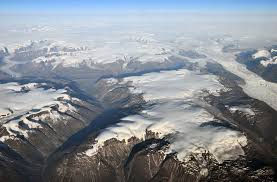Sea Levels Will Rise Faster Than Ever If Earth's Warming Continues , Study Says ...
- Nov 9, 2016
- 2 min read
Sea Levels Will Rise Faster Than Ever If Earth's Warming Continues, Says Study

An anonymous reader quotes a report from Scientific American: Sea levels across the globe will rise faster than at any time throughout human history if the Earth's warming continues beyond 2 degrees Celsius. The Atlantic coast of North America will be one of the worst-hit areas as melting glaciers cause the sea level to rise over the next century, a new study published yesterday in the Proceedings of the National Academy of Sciences finds. However, that rise is not expected to be uniform, as gravity and the movement of the ocean will play a role in how the water is distributed, and some areas will be hit worse than others. New York and other cities along the East Coast could see seas rise by more than 3 feet by the end of the century if the Earth warms by 4 or 5 degrees beyond preindustrial levels. If the rate of carbon emissions continues unabated, the authors said, the globe would warm by 2 degrees and cause significant sea-level rise by 2040. It would be worse along the East Coast of North America and Norway, which are expected to experience a sea-level rise of about a foot. The relative speed of the sea's rise means many areas won't have time to adapt, researchers found. And from there, warming would accelerate even faster. Two degrees of warming is expected to cause an average global sea-level rise of 8 inches, but virtually all coastal areas will see more of a rise, [researcher and lead author of the study Svetlana Jevrejeva], found.

If warming exceeds 2 degrees by 2100, as some climate scientists worry it might, about 80 percent of the global coastline could experience a rise in sea levels of 6 feet. Such a rapid rise in sea levels is unprecedented since the dawn of the Bronze Age about 5,000 years ago, according to the study. The research takes further the potential for sea-level rise posed by the Intergovernmental Panel on Climate Change, which argued that sea-level rise of 11 to 38 inches is possible by 2100. Many climate scientists have since claimed that estimate is too conservative.































Comments